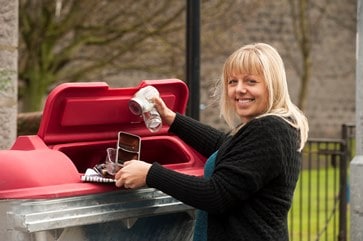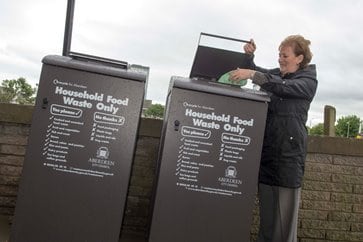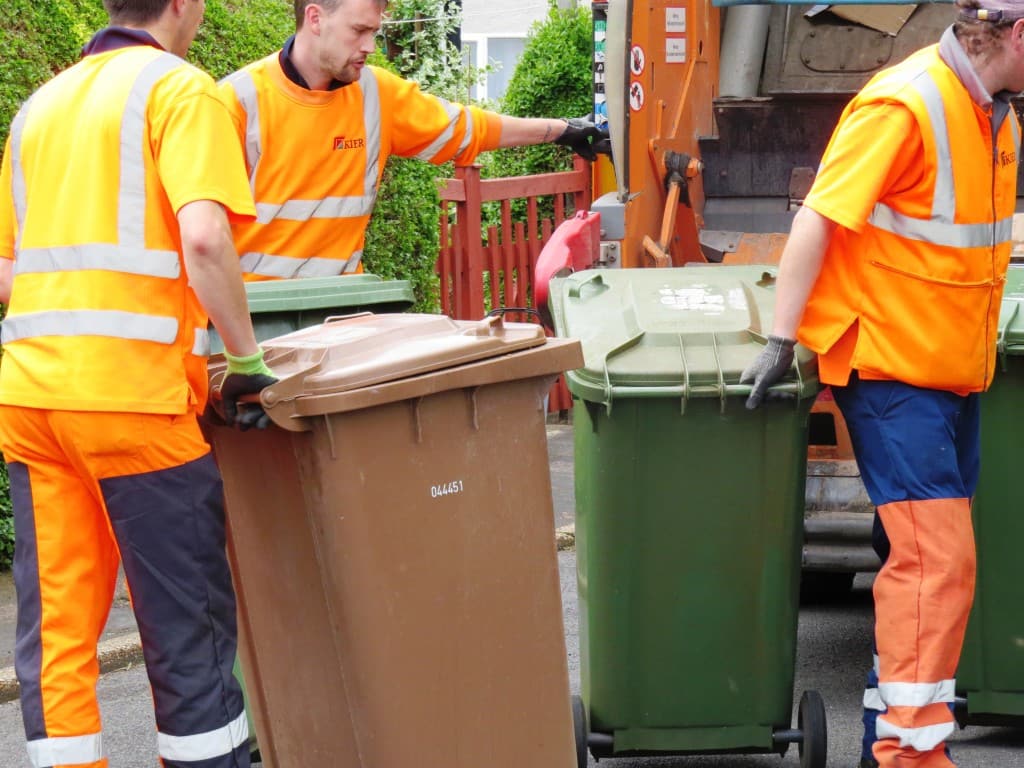Aberdeen councillors have approved a waste strategy for the city up to 2025, which includes plans to develop an energy-from-waste (EfW) plant, a materials recycling facility (MRF) and organic waste treatment facilities.
And, the document also sets out targets to recycle 50% of household waste through source separation by 2020, rising to 56% by 2025 when the council aims to landfill no more than 5% of household waste.

Agreed at the city councils Finance, Policy and Resources Committee yesterday (May 6), the waste strategy covers the period 2014-2025 and revises the previous strategy approved in 2010 in order to reflect recent Zero Waste Scotland regulations.
Zero Waste Scotland regulations, which came into force this year, include targets to recycle 50% of waste by 2015, 60% by 2020 and 70% by 2025. In addition, councils must offer a separate food waste collection service and biodegradable materials will be banned from landfill from January 2021.
The strategy also reflects the 28 million investment newly committed by the council to introduce new commingled recycling collection services and waste infrastructure, although specific completion dates and plans have not yet been finalised.
The council currently operates a fortnightly collection of dry recycling for 75,000 properties (around 70% of city households) through a separated box and bag system. But, it hopes to replace this over the next few years with a wheeled bin service for all households accommodating commingled recycling including glass, beverage containers and plastic pots, tubs and trays.
In addition, the council operates a fortnightly kerbside collection of food and garden waste for more than 51,000 properties (47% of households). The council also hopes to collect food waste from all households and complete the roll out of on-street communal food waste bins by 2015.
In Aberdeen there are five household waste and recycling centres (HWRCs), 46 public recycling points and 1006 private recycling points, but as part of its infrastructure investment the council hopes to develop a wider range of modern HWRCs to collect a wider range of recyclable material.
‘Implementing the proposals within the Waste Strategy will make Aberdeen a zero waste city, providing long term social, economic and environmental benefits to us all.’
Neil Cooney, Aberdeen city council housing and environment convener
New infrastructure
SITA UK previously dropped plans in 2004 for a 40 million EfW plant to process 160,000 tonnes of the citys waste per year as part the 25-year waste services contract it signed with the council in 2000 after it failed to secure planning permission (see letsrecycle.com story).
However, the council now again intends to develop a combined heat and power (CHP) EfW facility and hopes to secure further significant investment from government, the private sector and other alternative outlets.
Until the EfW is built, the council also hopes to develop facilities to produce and export a refuse derived fuel (RDF) from its black bag waste.
Additionally, the strategy sets out plans to develop a MRF that uses a range of mechanical and optical sorting technologies in order to accommodate Aberdeens future commingled recycling collections.
An in-vessel composting (IVC) facility to process organic waste is also planned, as one of the councils targets is to introduce organic waste collections for all households by 2016.

Waste
Aberdeens recycling rate stood at just 4% in 2000, but the city introduced garden waste collections in 2002 and kerbside recycling collections in 2004, which was expanded in 2009 to include food waste collections.
In 2013, Aberdeen produced nearly 110,000 tonnes of household waste, of which more than 71,000 tonnes (65.2%) was landfilled and around 38,000 tonnes (34.8%) recycled and composted. However, the costs for collecting and disposing of Aberdeens waste surpassed 19.9 million in 2012/13.
The strategy notes that there is also a significant amount of commercial and industrial waste produced in and around the Aberdeen area, adding that it is critical the strategy take into account non-household streams of waste. As such, the council plans to facilitate increased collections of business and commercial and industrial waste.
Zero waste city
Commenting on the strategy, Aberdeen city council housing and environment convener, Neil Cooney, said: As a city we understand the benefits when we reduce, reuse and recycle our finite resources and these principles underlie the plans within this document.
All of the materials in our waste containers can offer significant value to our homes and our businesses; we recognise the opportunities available to us when we recover these resources for our benefits – moving from a history of costly and damaging landfill to a future of sustainable resources and energy.
He added: Implementing the proposals within the Waste Strategy will make Aberdeen a zero waste city, providing long term social, economic and environmental benefits to us all.”









Subscribe for free